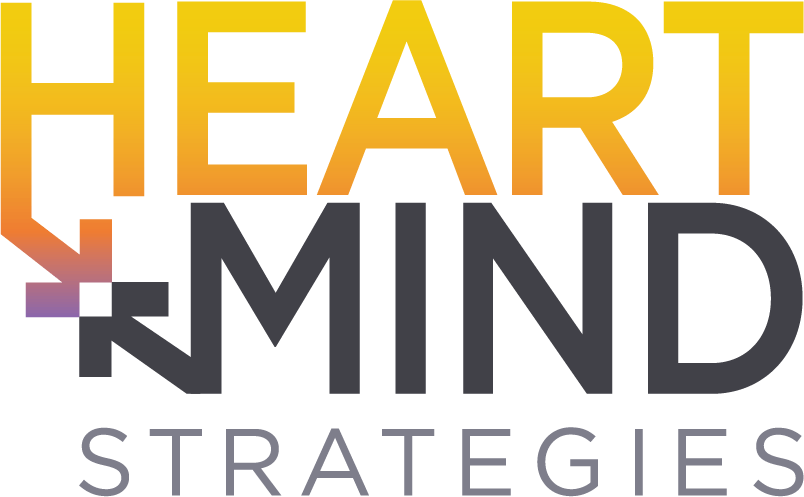The Heart+Mind Connection Series transcends simple discussion. Our recent spotlight on the caregiving crisis (The Unseen Toll of Caregiving: A Call to Champion Humans) paints a poignant picture of the evolving caregiving landscape.
The Unseen Reality
Crisis of Caregiving and Demographic Shifts: The global landscape is undergoing a seismic shift with aging populations and rising disabilities, setting the stage for an unprecedented caregiving demand.
“There are 48 million, mostly unpaid family caregivers… caring for a parent, a spouse, someone in their family, a partner, a friend, a neighbor,” Bob Stephen of AARP reported.
Nicole Jorwic of Caring Across Generations added: “Baby boomers are aging into the need for long-term services and supports. You also have the fact that in the next decade, a million autistic people will age into the need for adult services… it is a crisis, but it’s been a crisis for a long time.”
The Human Touch of Care: More than a duty, caregiving is a profound personal journey. Kris Dabadie of Heart+Mind Strategies said, “The care is rooted in love, devotion, and commitment.”
Bob Stephen from AARP shares some of the statistics around caregiving in America and how it impacts workers. He outlines three goals that AARP has, as an organization, to work to improve the caregiving journey. He reminds us that the Caregiving Crisis is “not a Red or Blue issue, it’s an all-of-us issue.”
Daily Challenges Caregivers Confront
- Preparedness + Adaptability: The world of caregiving is dynamic. Julie, our caregiver guest, shared how her story caring for Lester after his brain aneurism, exemplified the unpredictability: “Most of us are not ready.”
- Isolation + Community: Many caregivers grapple with feelings of solitude but deeply yearn for community understanding and support.
- Economic Implications: The costs of caregiving are multifaceted. As Julie voices, “There are still huge gaps for all caregivers, impacting both the caregiver and those in need.”
RELATED: Caregivers’ Guide: How to Create a Peaceful Home Environment
From Challenges to Opportunities
- Balancing Work + Care: Blending work and caregiving is a modern tightrope act. Jorwic talks about the “care conga-line” of friends and family filling care gaps.
- Financial Relief: Caregivers significantly impact the economy, with AARP’s estimate of $600 billion in unpaid care.
- Recognition + Support: Businesses can play a role. Dabadie praises Heart+Mind’s flexible work policies but reminds, “There’s more to be done.”
- Advocacy + Awareness: Stories, like that of Julie and Lester, amplify the needs and realities of caregiving.
Nicole Jorwic from Caring Across Generations describes some of the insights gathered through research conducted with Heart+Mind Strategies. The biggest problem is the lack of infrastructure to support caregiving, and so family members inevitably fill in the gaps in care, which has a number of consequences on the individual as well as on businesses and the economy.
So What? Expert Advice
For the Caregiving Community
- Advocate for Change: Our panelists emphasized the importance of collective advocacy. Harness the power of personal stories to drive public awareness about the depth and breadth of the caregiving crisis.
- Prioritize Emotional and Physical Well-being: Caregiving is deeply personal and can result in significant strain. Remember, it’s rooted in love, duty, and cultural values. Ensuring the emotional and physical well-being of caregivers is paramount.
- Resource Optimization: People do not know what’s available. Maximize the benefits of available resources by promoting their awareness and breaking down societal barriers to their utilization.
For Business Leaders with Caregiving Employees:
- Flexibility is Key: Recognizing the unpredictable nature of caregiving, our panelists called for adaptable work environments. From self-managed PTO policies to broadened paid leave, the need for workplace flexibility was a recurring theme.
- Economic Support: Financial burdens often compound the stresses of caregiving. Solutions like tax credits, subsidies, and supportive workplace policies can provide significant relief to caregiver employees.
- Foster a Supportive Culture: “It’s about more than policies; it’s about culture,” one panelist noted. Cultivate a workplace environment that’s understanding and empathetic to the challenges faced by caregivers. Acknowledge and validate their roles, provide them dedicated spaces to share experiences, and connect them to local resources.
- Awareness and Advocacy: Businesses are uniquely positioned to amplify the message around the caregiving crisis. By leveraging social media, technology, and collaborative networks, they can significantly impact public perception and policy direction.
In this segment Kris Dabadie from Heart+Mind Strategies shares learnings from the extensive research Heart+Mind has done on the subject of caregiving in America, as part of our work for Caring Across Generations. She clearly defines the extent of the human toll that providing ongoing care has on individuals, and she offers recommendations for employers and all of us as people for what we can do to better support the need for caregiving and receiving in our life journey.
A Resounding Call to Leaders and Policy-Makers
Facing a demographic shift and surging caregiving demands, we call upon leaders to look beyond the statistics. Witness the stories, the heartbeats of caregiving.
“It’s just a lot for one person. You never have a break. Many of us have given up our jobs in the need to be home looking after the person that is our family member,” Julie expressed in her reality caring for her Lester.
We urge leaders to channel this momentum into actionable change. For those ready to reshape organizational strategies, Heart+Mind Strategies is poised to guide.
Dive deeper into the caregiving narrative. Understand more and catalyze change with Heart+Mind Strategies. Learn more about the work we do and how we might be able to help you with your issue, challenge, or strategy.
To hear the full conversation, and hear the real life story of our friends Julie and Lester and their caregiving/receiving journey, watch the full session below.
